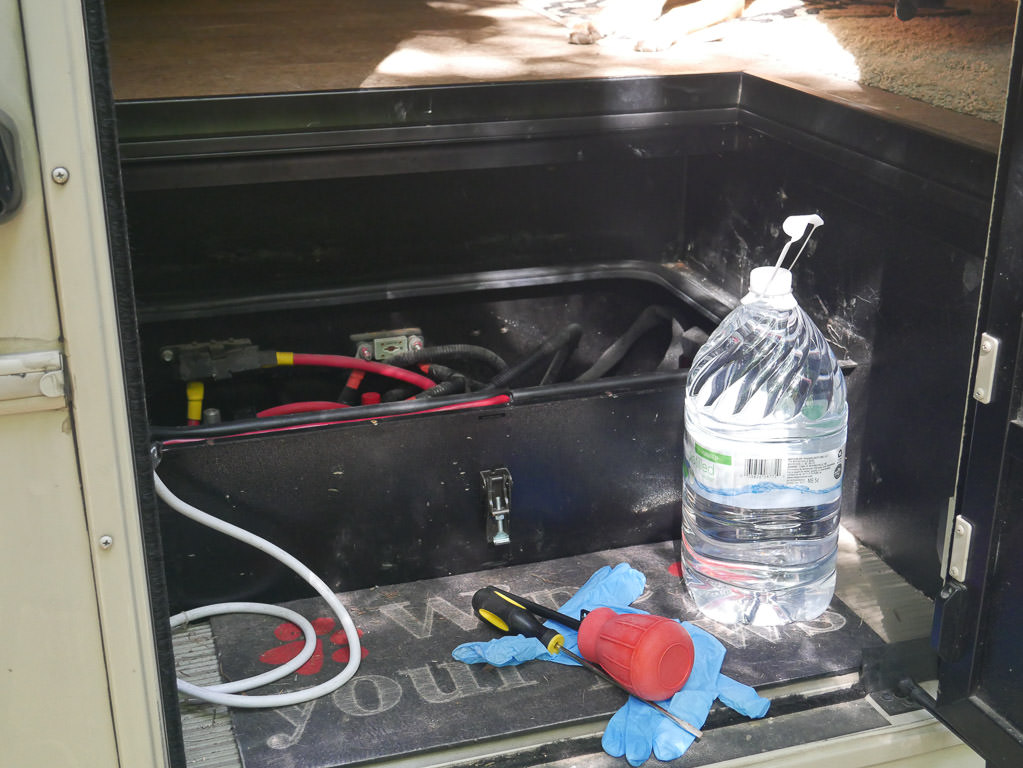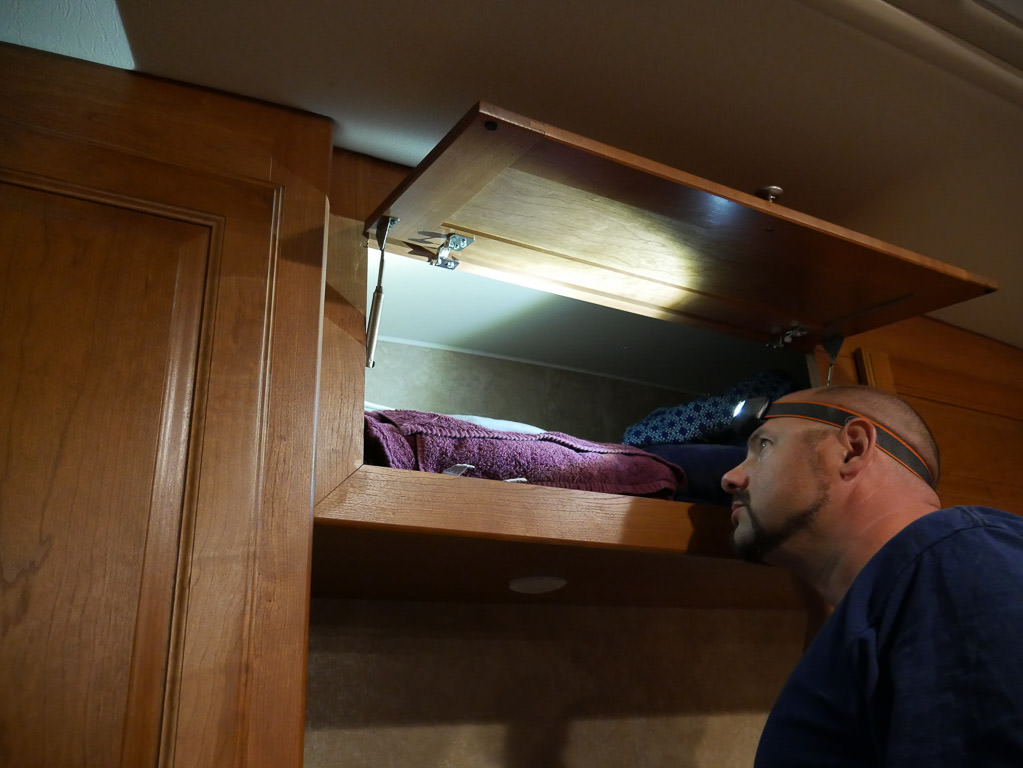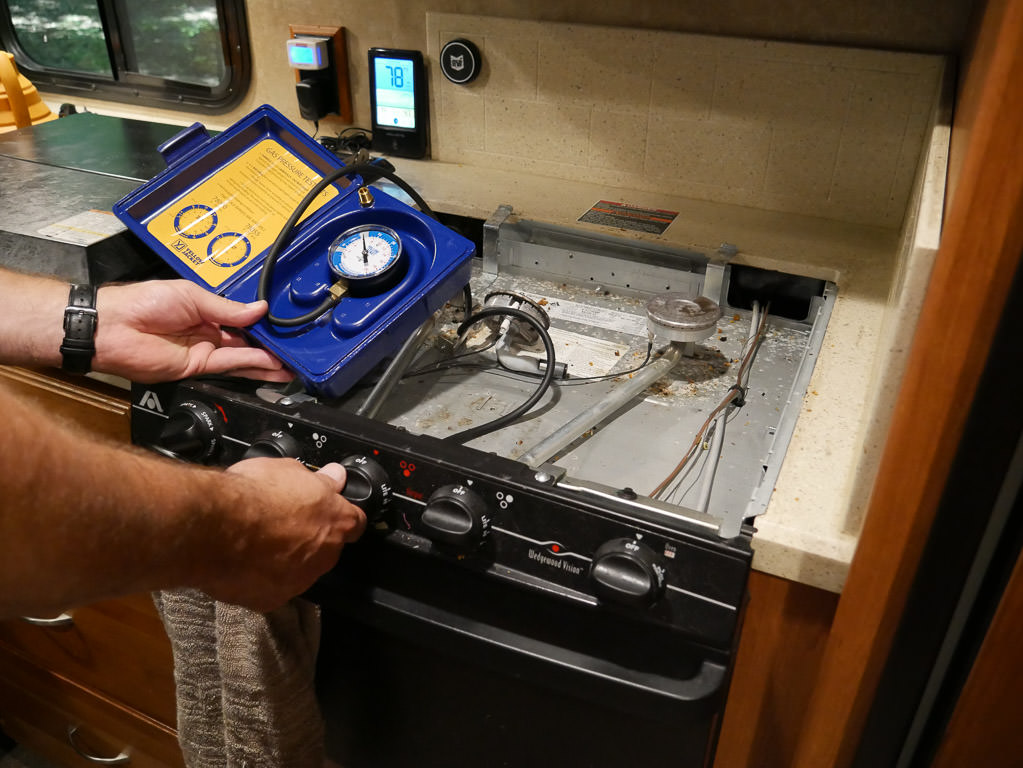
Preventative RV Maintenance & Care: Part 2 -- Inside Checks
This is Part 2 of our two-part preventative maintenance and care article series. In Part 1, we looked at outdoor checks to keep you RV in good shape and in this part of the series, we are going to move onto the inside of the RV, and also talk about the electrical and plumbing systems.
It is important to note that we are full-time RVers, so some of the timelines mentioned may need to be adjusted for your travel style. We also want to remind everyone to take the necessary safety precautions before doing these checks and if you aren't comfortable doing any of these, seek a professional for help instead.
RV Batteries
Let's start with as we enter our RV, our steps double as a housing compartment for our chassis battery and our two house batteries. They are easy to forget about, but they are incredibly important. Our house batteries operate all of our 12-volt systems in the RV and when we turn on our inverter, the power that it creates is drawn from those same house batteries. So, we want to keep them up and running in the best condition possible.
We do a monthly check on the water levels of our batteries and add distilled water as needed to bring the levels back to above the charging plates. It is also important to keep your batteries clean. I have read that dirt that sits on top of your batteries can actually cause your batteries to slowly discharge over time.
However, keep in mind that if your batteries say "maintenance free" you will not need or be able to add distilled water to them, as they are sealed. Maintenance free only means that you cannot add water, you should still periodically clean and check your cable connections.

Wire Connections
Next let's talk about the 120-volt system. But before you do anything, turn off your main breaker and shore power breaker, unplug from shore power, and make sure your generator is not running.
With all power disconnected, I like to check as many of the wire connections as possible. I do this every 10,000 miles because our RVs get bounced around a lot on the road and it is easy for things to work themselves loose. I just started doing this recently due to an issue we had with our automatic transfer switch. If I would have been doing these checks sooner, I would have caught this issue before we lost power one night.
The two main areas I check are the connections in the main breaker panel (ours is located under our bed) and our automatic transfer switch. If any of these wires would become loose, they can begin to arc and cause serious damage.
While checking these connections to make sure they are tight, take a look at the wiring as well and look for any discoloration, such as white wires turning brown. This is an indication that there is something causing resistance, such as a loose wire. Resistance will cause excessive heat and damage those wires.
Fixtures
While you have your screw drivers out checking the connections of the wires, now would also be a good time to go around and tighten cabinets, light fixtures, door handles and anything else that may be vibrating loose. We once had our dinette lamp fall down from so much road vibration. Luckily it did not break, but a simple turning of the screws once in a while prevents things like this ever happening again.

Plumbing
For the plumbing system, I like to look under the cabinets of our sinks on a quarterly basis for any signs of leaking - especially at any connections or signs of water damage at the bottom of the cabinet floor. I remove and dismantle our water pump every six months to clean out not only the strainer, but the diaphragm as well.
I also sanitize our fresh water tanks with bleach on a quarterly basis, this is not only for our safety to drink the water, but it also helps prevent bacteria from growing inside your water pump which will eventually cause it to clog up.
Appliances
Onto the maintenance of our appliances, starting with our refrigerator. There is not much to do other than to defrost it every so often. Keep an eye on the metal fins in the back of the fridge for frost and ice buildup. A small amount of ice and frost on the fins is ok, but you don't want it looking like a glacier back there. Excess ice buildup will make your refrigerator run less efficiently and no one wants their ice cream to melt or freeze up.
Our stovetop is another appliance I keep an eye on by performing a propane leak test. This test may not be for everyone, since you need a gas pressure kit and not everyone has one on board with them. But, I use one made by Yellow Jacket and it works great. This test is not only checking the stove top for leaks, but the entire RV. The test takes about twenty minutes to set up and get the readings. If it shows any drop in pressure, then you have a propane leak somewhere in your RV and it's time to start looking or smelling around to find out where the leak is located. I perform this test every six months.
However, working with LP gas is not for everyone. If you do not feel you have the knowledge or desire to safely perform an LP pressure test, please contact a professional.

Daily Visual Inspection
Finally, I like to do an overall visual inspection of everything in the RV, this can be done every day just as you walk through your RV. As you use your RV, try to be mindful of the condition of your equipment and how everything is working.
During heavy rain storms, I also like to open all of our cabinets to look for any signs of water coming in through the ceiling. A lot of times, cabinets can hide any evidence of water damage, so I open all of our cabinets and search the corners with a flashlight.
As I've shared in these blog posts, I am always trying to catch an issue as it is beginning rather than waiting for it to fail completely. I hope you found this two-part maintenance series to be very helpful and I wish everyone safe travels as they continue to enjoy the RV life.
Comments
Comments on this post are moderated, so they will not appear instantly. All relevant questions and helpful notes are welcome! If you have a service inquiry or question related to your RV, please reach out to the customer care team directly using the phone numbers or contact form on this page .